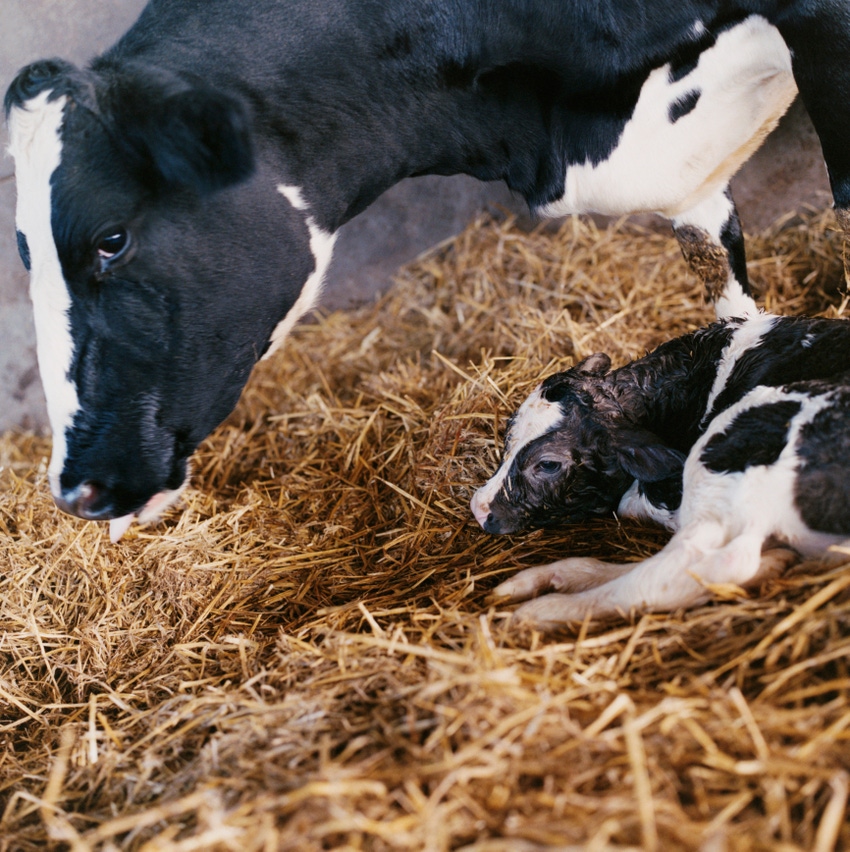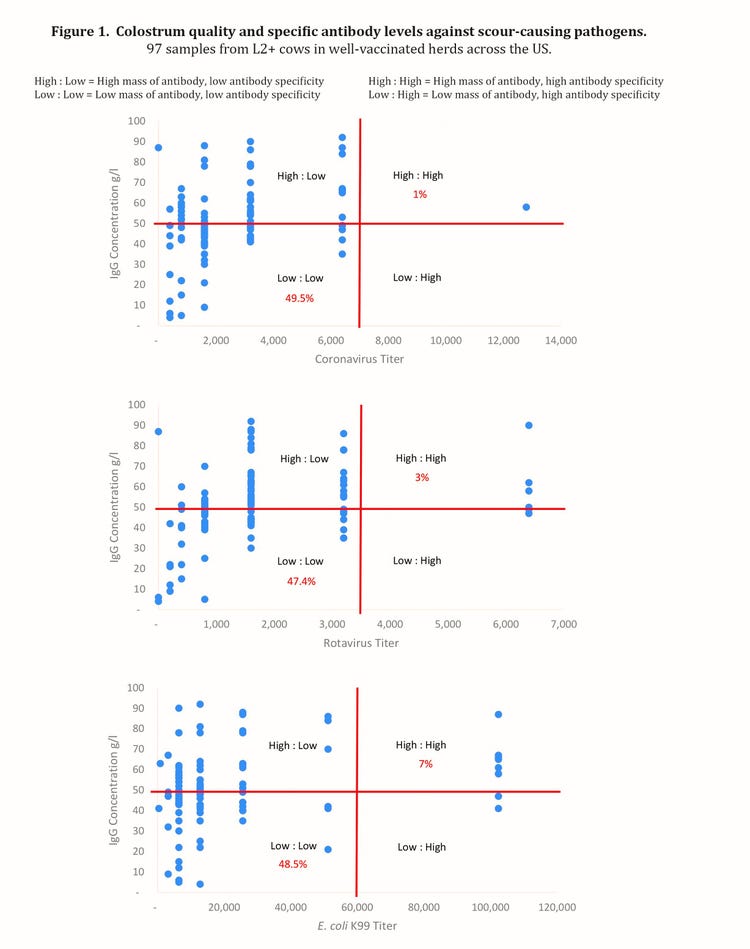Preformed antibodies help immunize calves against scour pathogens
Colostrum research shows scours-vaccinated cows produced insufficient antibody levels.
September 28, 2020

Independent researchers with Research, Technology, Innovation LLC recently measured colostrum from scours-vaccinated cows for general antibody levels needed to achieve successful passive transfer, plus for specific antibody levels needed to maximize immunity against scour-causing pathogens, according to an announcement from ImmuCell.
In samples meeting the industry standard for general mass of antibody (50 g per liter of antibody, also referred to as immunoglobulins), results showed that only 1% of cows had high concentrations of specific coronavirus antibodies, 3% were high in rotavirus antibodies and 7% provided colostrum that was high in Escherichia coli antibodies, ImmuCell said, pointing to results from a white paper prepared by the researchers.
“To achieve successful passive transfer, newborn calves need a high level of general antibodies, but that’s often not enough to prevent scours,” ImmuCell vice president of sales and marketing Bobbi Brockmann said. “Calves also need elevated levels of specific antibodies to maximize immunity against scour-causing pathogens.
"Traditionally, farmers have relied on pre-calving scour vaccines to increase antibody levels in colostrum to protect against common scour-causing pathogens. These vaccines require the already immunosuppressed pregnant cow to mount an immune response and then transfer those specific antibodies into colostrum. Unfortunately, a vaccine response rate is inherently variable, and protocol drift increases that variability, creating an even bigger gap between what farmers pay for and the calf protection they actually get,” Brockmann added.
The study analyzed 97 single-cow colostrum samples taken from 10 well-vaccinated herds (8-10 samples per herd) comprised of farms in California, Idaho, Michigan, Ohio, New York, Pennsylvania and Texas, ImmuCell said. Each herd had been using a dam-level vaccination program according to label recommendations for more than three years.
Researchers collected first-milk colostrum post-calving from only multiparous cows and then used Bethyl Laboratories assays to measure general antibody mass, virus neutralization assays to quantify specific antibody titers against coronavirus and rotavirus and a U.S. Department of Agriculture-approved titer assay to determine specific E. coli antibody levels.
The Figure shows each cow’s colostrum relative to mass of antibody and titer level against coronavirus, rotavirus and E. coli, with the red lines distinguishing the quadrants. According to the results, almost half of the cows sampled provided colostrum that fell in all three “low : low” quadrants, indicating that the colostrum was low in general mass of antibody and specificity against coronavirus, rotavirus and E. coli pathogens.
The results also showed that an extremely low number of cows provided colostrum in the “high : high” quadrant, with only 1% for coronavirus, 3% for rotavirus and 7% for E. coli antibody.
“Vaccination is simply the act of administering a vaccine. These numbers confirm that immunization is not a guaranteed outcome with vaccination, and calves are left unprotected against scour-causing pathogens,” Brockmann said. “Despite increased adoption of pre-calving scour vaccines since the 1970s, scour incidence has not improved, likely because of extreme variability. Farmers and veterinarians are seeking alternative treatments that deliver guaranteed levels of specific antibodies — without a vaccine.”
During a recent immunology symposium, Dr. Chris Chase with the South Dakota State University department of veterinary and biomedical sciences highlighted the use of preformed antibodies to immunize newborn calves against scour pathogens, ImmuCell said, noting that Chase said these antibodies protect against both bacterial and viral scours.
“With vaccines, there are too many outside factors, making a 100% immunization response rate biologically impossible,” Chase said. “With a USDA-approved antibody product, farmers know exactly what they’re getting: a level of immunity proven in third-party studies to protect against scours.”

You May Also Like



